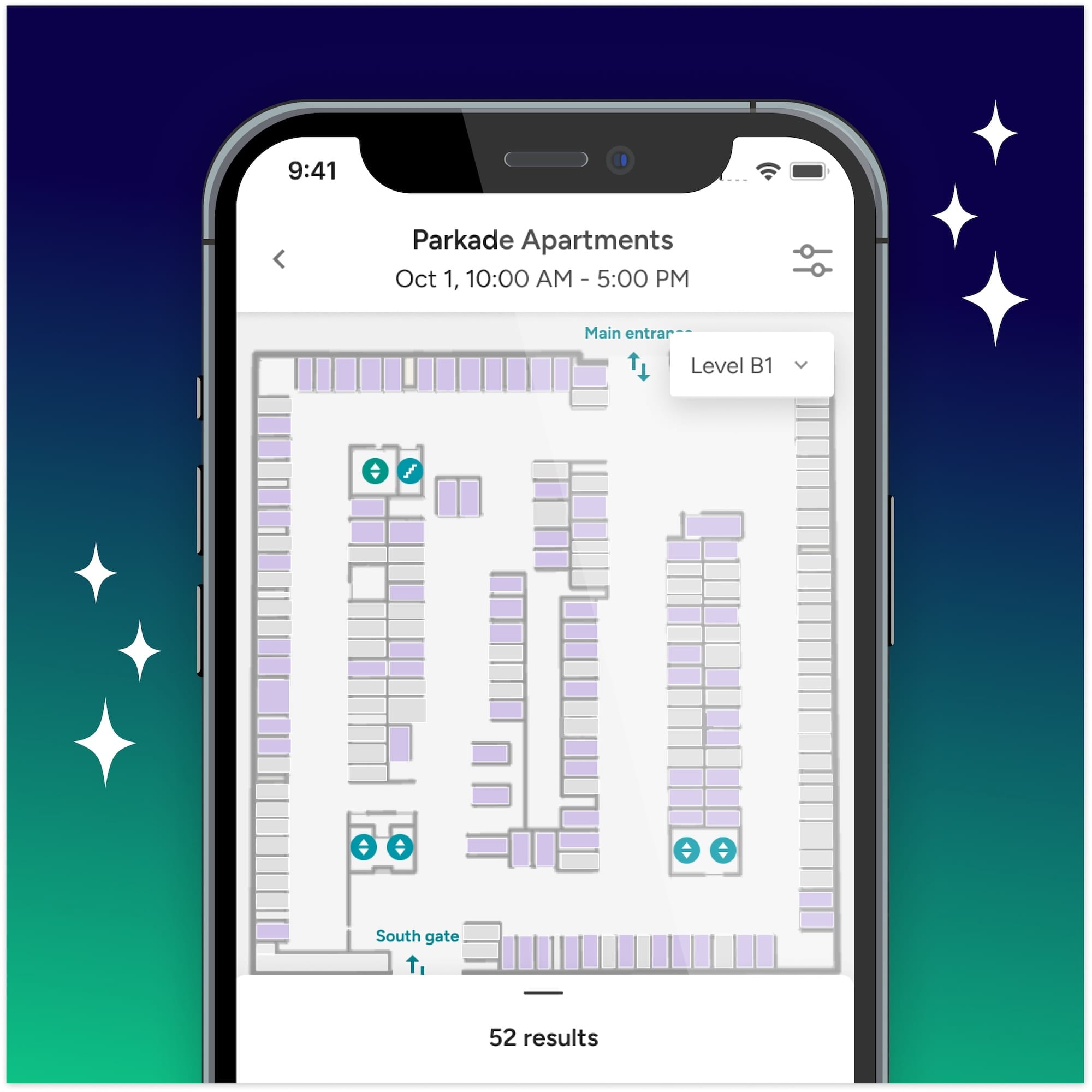

TABLE OF CONTENTS
Parking gates can be a great solution to help you keep your parking lot or garage more secure and to give you some extra assistance with enforcement.
But despite the potential benefits, a parking gate system brings a handful of complications with it, including high costs, ongoing maintenance, and the task of picking the right access method. For some properties, the benefits far outweigh the drawbacks. For others, a gate may not be worth the hassle.
So how can you decide whether a gate is the right option for your property?
So we’ve talked to several of our customers who have been faced with this same question and asked for their insight into what helped them make the best possible decision, and whether they’re confident they ultimately made the right choice.
From these conversations, we identified several key indicators for when you should and shouldn’t install a parking gate.
Some properties have more than enough parking for residents and staff, so they’re more than happy to allow non-residents to grab a spot. In this case, you probably don’t need (or even want) a gate.
In areas that are less saturated, you don’t have to worry about controlling traffic as much as busier areas. Since there are likely no visitor hot spots or a lack of public parking facilities near you, you don’t have to worry about stopping non-residents trying to sneak into your lot or garage.
Parking gates have minimum space requirements that prevent some properties from being able to retrofit for a parking gate. Jeremiah Simpson, a parking consultant we chatted with from Kimley-Horn, advised us that you need about 20-25 feet between your gate and the road for each car that will be queued at your peak hour traffic to avoid backing up into the street.
Gates are expensive. We talked to Mark Lehman from Power Access Control, and he told us that the bare minimum cost for a gate is around $25,000, but the average cost for a simple 2-lane gate system hovers at closer to $55,000. If budget is a major concern, installing a gate may not be feasible, especially if you want to invest in a higher quality option that isn’t going to lead to costly repairs down the road or cause damage to residents/property.
One of the main benefits of a parking gate system is its ability to help you more reliably enforce your parking rules by keeping non-resident cars out of your lot. So if you have a very small assigned parking lot that you can reliably enforce, installing a gate may not be worth it.
Some properties don’t want parkers to have to deal with the hassle of a gate and would instead like to use a digital solution, like Parkade, to allow people to pay for access to a numbered spot.
If you’re in a central area where non-residents are often looking for parking, like near a city center, a sports arena, or a metro line, for example, you may be dealing with a lot of people abusing your parking lot.
Gates can help to cut down on the number of people illegally parking in your lot, and it could even offer the opportunity to capitalize on this parking demand by offering up paid parking to the public if you have the space and a system for it.
Sometimes, a gate system is the only way to ensure that very specific or complicated parking rules are followed.
We came across this with one of our customers in a busy downtown location. Their property has both long-term residents and hotel-style guests. They have a multi-level garage, and short-term guests are only allowed on certain levels. Adding gates between restricted areas, paired with the Parkade app that can detect their level of access, makes this strategy much easier to enforce.
Another major benefit of a parking gate is the added layer of security it provides for your property. Since resident safety should always be a top priority for property managers, if you live in a high-crime area where your residents may be at risk of incidents caused by trespassers, a gate is a must.
If you’re already having problems getting your current residents a spot to park in, you don’t want to add any additional strain to your already limited parking by giving non-residents or guests easy access to your parking lot or garage. Adding in a gate as a barrier can nip this possibility in the bud, and prevent you from having to invest more time and energy into tracking down vehicle owners or calling tow trucks.
Not only can a gate help you better enforce paid parking by not letting people get away easily with parking for free, but it can also help you “payoff” the costs of gate installation and maintenance.
The increased security that a gate provides can also often justify higher parking prices as well, compared to open and less reliable parking.
Whether your residents are asking for a parking gate for one of the reasons listed above, or for some reason that is more specific to your property, it’s worth hearing them out. If neglecting to get a gate may impact your reviews and resident retention, it’s probably an investment you can’t afford to do without.
Depending on who you have going in and out of your parking lot, you may only need to restrict some areas with a gate.
Fully gated parking is typically the best option for properties that are strictly residential. But for properties that may have retail visitors or want to leave spaces for leasing office parking, a nested gate may be a better option. This helps you balance convenience and security.
Either of these options can be used for either structured or surface parking.
The decision to install a parking gate system is just the first step. There’s a range of other considerations that you need to mull over. Check out our parking guide with everything you need to know about parking gates to get the full picture.
.jpg)
As parking management becomes increasingly digital, security becomes critical — and we’re excited to share that we've achieved a major security milestone.
Read Story
We’re thrilled to announce one of our most significant leaps forward this year: the launch of dynamic maps across our mobile and web applications.
Read Story
Now that AB 1317 is official, it’s time to brush up on the requirements and see how your properties stand to benefit.
Read Story